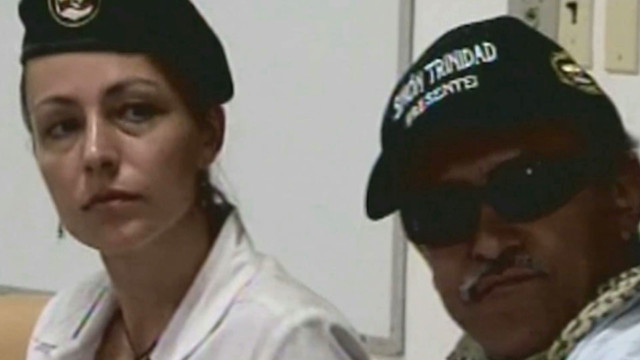In June, Colombia’s FARC rebel group officially laid down its arms. Thousands of former fighters are trying to find their place in civilian life. Some of them came from other countries.
As CGTN’s Michelle Begue reports, they will be allowed to stay, and help the government they tried to overthrow.
Tanja Nijmeijer fought in a war 9,000 kilometers away from her native land. Born in the Netherlands, she came to Colombia in 1998 to work as an English teacher then four years later, took up with FARC rebels.
“When I got to know the situation of social injustice, of inequality in Colombia, after many years I decided to join the guerillas,” Nijmeijer said.
With last year’s signing of a peace deal between the Colombian government and FARC, Tanja got the opportunity to become a Colombian legal resident. The Colombian government has granted special visas to 85 verified foreigners who fought for FARC.
“We didn’t come to Colombia to make war,” said Nijmeijer. “I came to Colombia to construct, to build a better country. So if they were to send me back right now, if they wouldn’t let me stay in Colombia, I couldn’t help in constructing the country we dreamed about.”
During the peace process, Tanja was part of the FARC negotiating team. Now that the conflict is over, she says she doesn’t want to take on a political role, but would prefer to work in rural areas.
“I really enjoy working in the territories, being with our people, which is like my second family in a way,” she said. “Right now for example, I am in charge of education in the transitory zones.”
The special visas were granted through a presidential decree and permitted within the framework of the peace accords. But the move had opponents–notably, Colombia’s attorney general–who argued the visas were unnecessary and formally requested they be revoked.
One Colombian congressman says not to expect the visas to be rescinded. It’s a done deal and the commitment is binding.
“In the Colombian Congress we agreed to amend the Constitution to incorporate the peace agreement into our constitution,” said Colombian Senator Ivan Cepeda. “So this isn’t just an agreement between the government and the guerrillas. This is part of our constitution and we must obey it.”
Tanja and the other foreigners have not received their visas yet, but she says that by remaining in the country she will not only participate in peace building, but also in revealing the truth about what happened during those decades of war.
“Like any other guerilla fighter, the foreigners also have to go to the truth commission,” she said. “We also have to go to the peace tribunal, and for that we have to stay in Colombia. That wouldn’t be possible if we all go to our countries.”
 CGTN America
CGTN America

